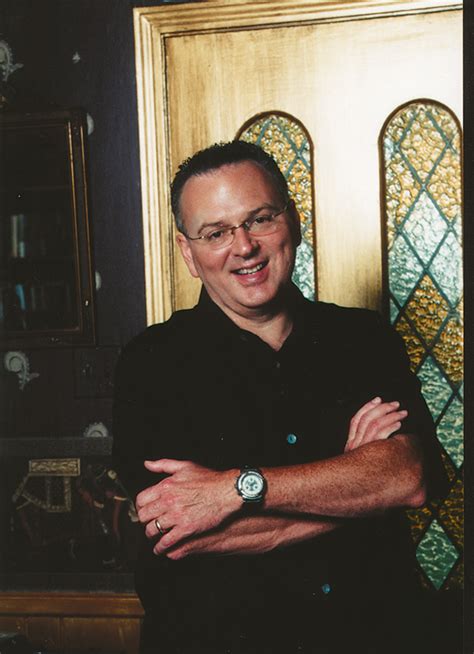A Quote by Selma Blair
We may have created this projection of what God should be, as this judge or test, but the fact is, the only way we know about God is by knowing ourselves in some way. So God must be in ourselves-you can't deny that. If you say that God is somewhere else, which is what a lot of religions say, I just can't deal with it. I guess it's the difference between Buddhism, Christianity, and Judaism, or something.
Related Quotes
You hear a lot about God these days: God, the beneficent; God, the all-great; God, the Almighty; God, the most powerful; God, the giver of life; God, the creator of death. I mean, we're hearing about God all the time, so we better learn how to deal with it. But if we know anything about God, God is arbitrary.
By studying the Bible one can at best know about God. There is a vast difference between knowing God and knowing about God. Knowing God comes through direct power encounters and through biblical study. These power encounters are usually of a variety which cannot be found within the context of the dusty moldy pages of God's past tracks.
The atheist does not say 'there is no God,' but he says 'I know not what you mean by God; I am without idea of God'; the word 'God' is to me a sound conveying no clear or distinct affirmation. ... The Bible God I deny; the Christian God I disbelieve in; but I am not rash enough to say there is no God as long as you tell me you are unprepared to define God to me.
If I had to choose between the two ways of approaching the deity, I should prefer the existential relational way, to the abstract philosophical way. I think it is truer, or in any case, less misleading, to say that God is an old Jew with a white beard whom I love, than to say that God is the ground of being and meaning, or to say that God is a name denoting the ultimate mystery. I prefer the bold primitive colors of the Biblical way of describing God.
Do you know God? Do you know there is a power greater than ourselves which manifests itself within us as well as everywhere else in the universe? This I call God. Do you know what it is to know God, to have God's constant guidance, a constant awareness of God's presence? To know God is to reflect love toward all people and all creations. To know God is to feel peace within - a calmness, a serenity, an unshakeableness which enables you to face any situation. To know God is to be so filled with joy that it bubbles over and goes forth to bless the world.
A Christian should know that God is a Creator, that God is an entity that is all-powerful and all knowledgeable, God is everywhere and God is an entity filled with grace, love, compassion and forgiveness, that Jesus is the son of God and Jesus came on earth to explain to people in a very revolutionary way the nature of God, that God was not a stern judge who was keeping track of 600 or so rules and regulations that you had to keep in order to be acceptable to God.
True religion is when you serve God to get nothing else but more of God. Many people use religion as a way of getting something else from God they want-blessings, rewards, even escape from judgement. This is wearisome to us, and to God. But when God is His own reward, Christianity becomes thrilling. Sacrifice becomes joy.
I don't know whether God exists or not. ... Some forms of atheism are arrogant and ignorant and should be rejected, but agnosticism—to admit that we don't know and to search—is all right. ... When I look at what I call the gift of life, I feel a gratitude which is in tune with some religious ideas of God. However, the moment I even speak of it, I am embarrassed that I may do something wrong to God in talking about God.
It's the fact that your body and your personality are not God. God is you. But you can't say you are God just as the ocean is all the waves, but you can't say one wave is the ocean. And so you manifest God in a way that you don't understand. Man himself is the image of God, but he doesn't see that image in himself. And you need to meditate, and there will come your answer, not looking in the mirror.
To terrorize a man into believing in God is never the work of God, but the work of human expediency. If we want to convince a congregation of a certain thing, we may use terror to frighten them into it; but never say that is God's way, it is our way. To call that God's method is a travesty to the character of God.
Orthodoxy is idolatry if it means holding the 'correct opinions about God' - 'fundamentalism' is the most extreme and salient example of such idolatry - but not if it means holding faith in the right way, that is, not holding it at all but being held by God, in love and service. Theology is idolatry if it means what we say about God instead of letting ourselves be addressed by what God has to say to us. Faith is idolatrous if it is rigidly self-certain but not if it is softened in the waters of 'doubt.




































